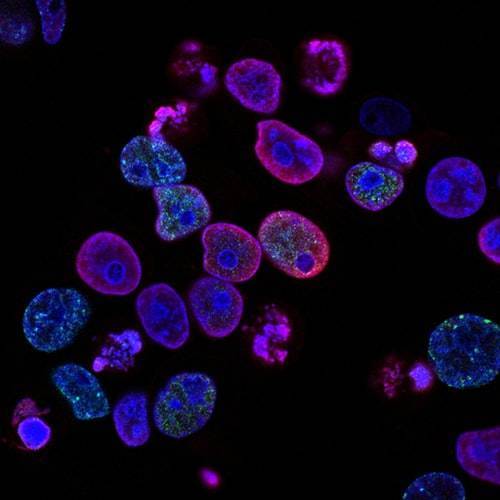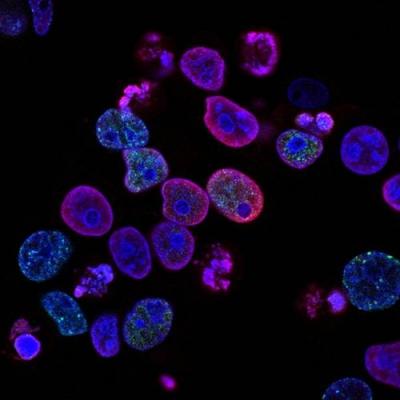Scientists from the University of Salford in England have discovered a mechanism that can halt the spread of cancer cells, as tumor metastasis accounts for approximately 90% of cancer patient deaths when treatments fail to save them. According to a recent study published in the prestigious journal Nature, metastatic cancer cells resist chemotherapy and radiation therapy, highlighting the urgent medical need to stop their spread.
Researchers identified that metastatic cancer cells require a massive amount of energy and that the "fittest" cancer cells are responsible for their drug resistance. By using a special sensor to detect adenosine triphosphate (ATP), the energy-carrying molecule found in cells of all living organisms, scientists were able to isolate the most effective cancer cells.
They found that cells with high levels of ATP are the most aggressive and spread five times more than others. Professor Michael B. Leisenth, a co-researcher in the study, stated, "This simple idea has been at our fingertips all along, but the link between ATP levels and cancer cell aggressiveness and treatment failure is new to us."
Federica Sutghia, head of cancer biology and aging, explained, "Ultimately, we can prevent the spread of cancer cells by directly cutting off their energy supply." Targeting the ATP molecule is one of the most effective ways to cut off the energy supply to cells. For this purpose, researchers used a drug approved by the U.S. Food and Drug Administration (FDA).
The drug "Sertiro" targeted the energy supply of cancer cells and prevented their spread by approximately 85%, causing an "energy cut-off" in cancer cells only, with no effects on normal cells, resulting in minimal side effects. Although the drug "Sertiro" was initially approved by the FDA for the purpose of inhibiting energy production in bacteria, the results of this study currently pave the way for new clinical trials specifically for cancer.




